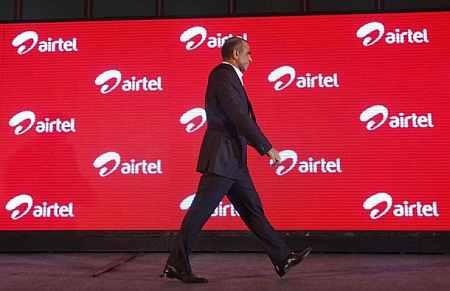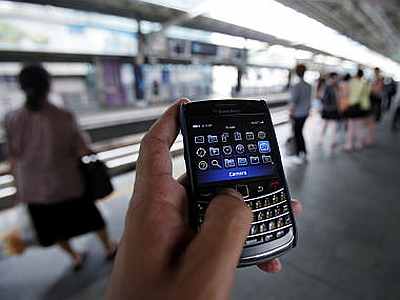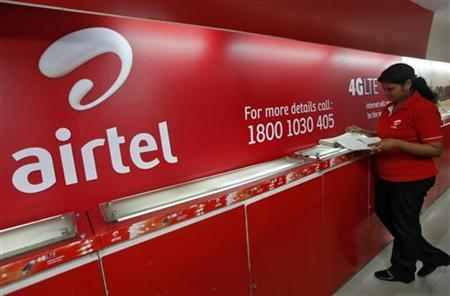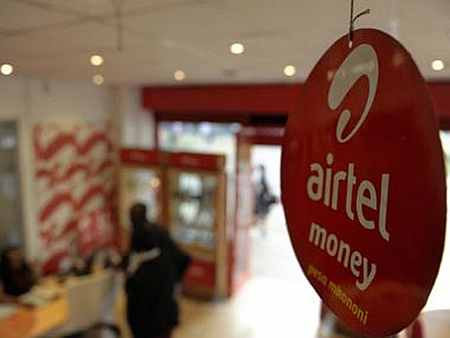 | « Back to article | Print this article |
3G tariff war: Airtel cuts rates up to 70 per cent
In an aggressive bid to improve the slow uptake of 3G services, the country's largest mobile operator, Bharti Airtel, on Thursday slashed tariffs in various plans by as much as 70 per cent across circles.
The move is expected to kick off a price war, with other operators working out their plans of action. A senior executive of Idea Cellular says, "We will have to look at the new tariffs, review them and take a decision based on the local competition, wherever we are in the same market. There are lots of markets where we offer services, along with Vodafone. The decision depends on how strong we are in a circle as well."
Idea had over 2.6 million active 3G subscribers in March this year. These subscribers contributed to the incremental average revenue per user of Rs 90, besides voice and value-added service usage. Bharti has about eight million 3G users.
Click NEXT to read more...
3G tariff war: Airtel cuts rates up to 70 per cent
Analysts say they expect most operators to join the bandwagon. "In the Indian telecom market, tariff cuts have been followed with immediate effect. Price reduction can increase penetration, but how much of this will lead to volumes for services like 3G will have to be seen," said Jaideep Ghosh, partner at KPMG Advisory Services.
Angel Broking analyst Ankita Somani says, "The move by Bharti will definitely increase volumes for the company. Except in the metros, the uptake of 3G services has been quite slow. Despite having 3G-enabled handsets, people are not availing 3G services because of high prices."
Somani, however, says the data services contribution to Bharti's mobile revenues is not growing, while there is an increasing trend in the case of Idea Cellular, adding the price cut will boost the data revenues for the company.
Click NEXT to read more...
3G tariff war: Airtel cuts rates up to 70 per cent
Nearly 18 months after 3G mobile services were launched, the number of 3G subscribers is merely 15-20 million, which constitutes less than two per cent of the total GSM subscriber base of 919 million.
Operators say the active subscriber base that uses the service regularly does not go beyond 10-12 million. Most operators had formed their business plans expecting that at least 10 per cent of the current subscriber base would shift to 3G services. They clearly overestimated the market.
The silver lining is that fewer than 10 per cent of the existing GSM users have 3G-enabled phones. About 15 per cent of incremental devices sold in the market are 3G-enabled.
Click NEXT to read more...
3G tariff war: Airtel cuts rates up to 70 per cent
However, the six operators who provide the service have forked out a staggering Rs 70,000 crore (Rs 700 billion) to buy spectrum and roll out networks in their circles.
Inadequate returns have forced them to use the expensive spectrum primarily for 2G voice services.
The dismal uptake also made Communications and IT Minister Kapil Sibal recently admit that 3G services were not a success.
Click NEXT to read more...
3G tariff war: Airtel cuts rates up to 70 per cent
Bharti, along with other GSM players Vodafone and Idea Cellular, has been critical of telecom regulator Trai's recommendations on spectrum auction, saying the reserve price recommended would increase 2G mobile tariffs as much as 100 per cent in some circles.
Bharti has used different models to provide more value to customers (see chart). One, it has increased the amount of data usage while keeping the pack price the same as earlier. Two, for those who pay according to usage, it has slashed tariffs from from 10 paisa per KB to three paisa per KB.
Bharti's data revenue, which include SMS, contribute about 14.4 per cent to total revenues.
Click NEXT to read more...
3G tariff war: Airtel cuts rates up to 70 per cent
The company is aggressively pursuing the data market and has launched 4G services in two circles, Kolkata and Bangalore. 4G services offer speeds much higher than 3G but there is no voice service in 4G.
The whole telecom industry has been battling intense competition, with dipping profits.
Bharti had posted a decline of 28.19 per cent in its consolidated net income, the ninth straight quarterly drop, at Rs 1,006 crore (Rs 10.06 billion) for the fourth quarter ended March this year.






